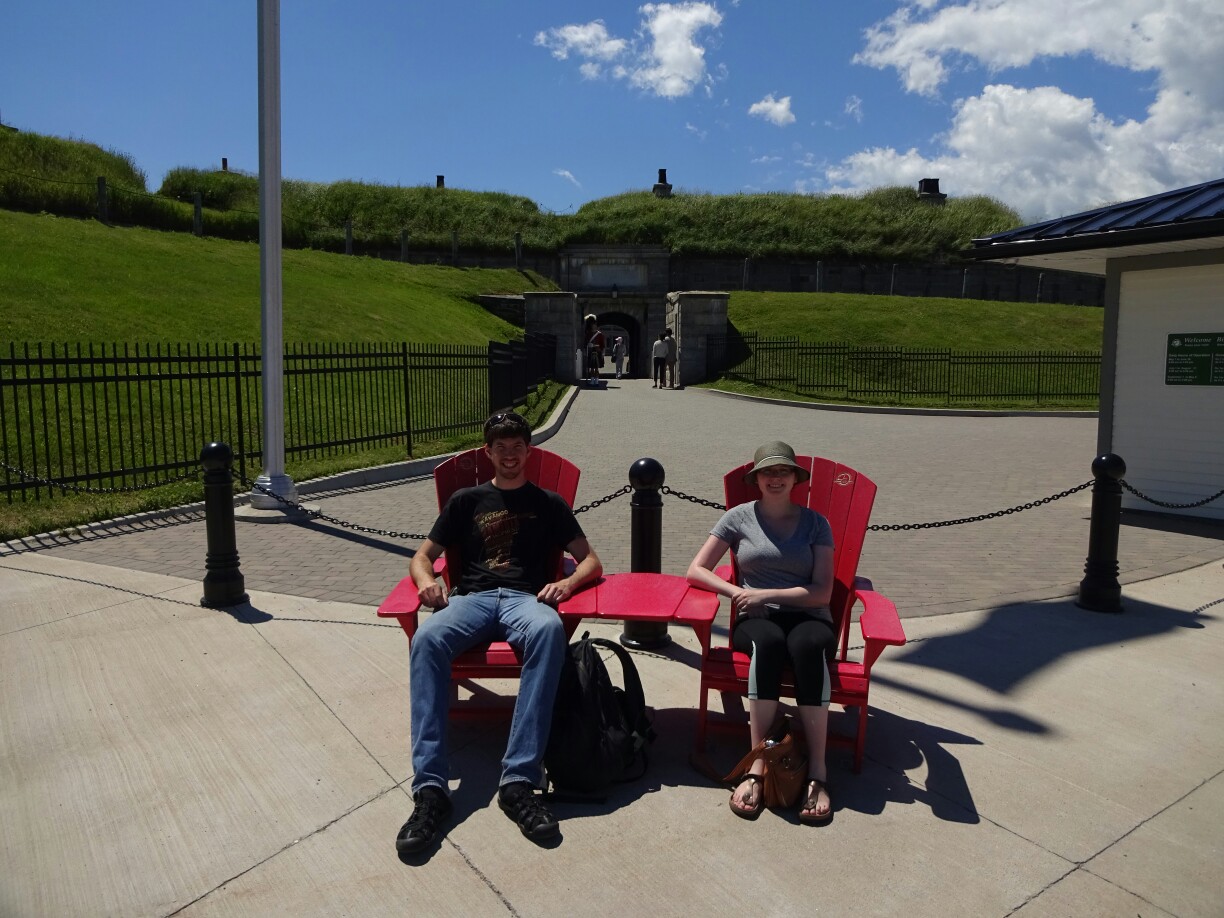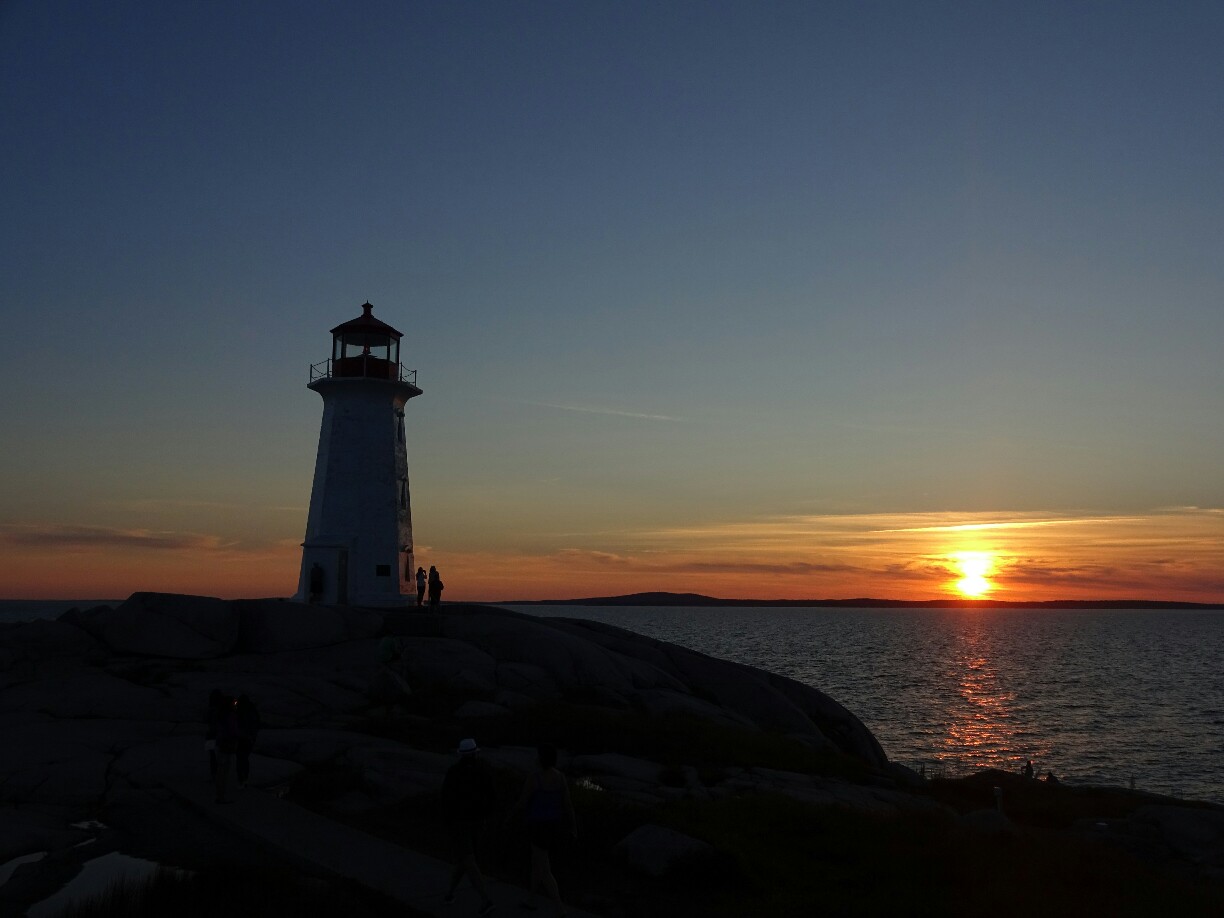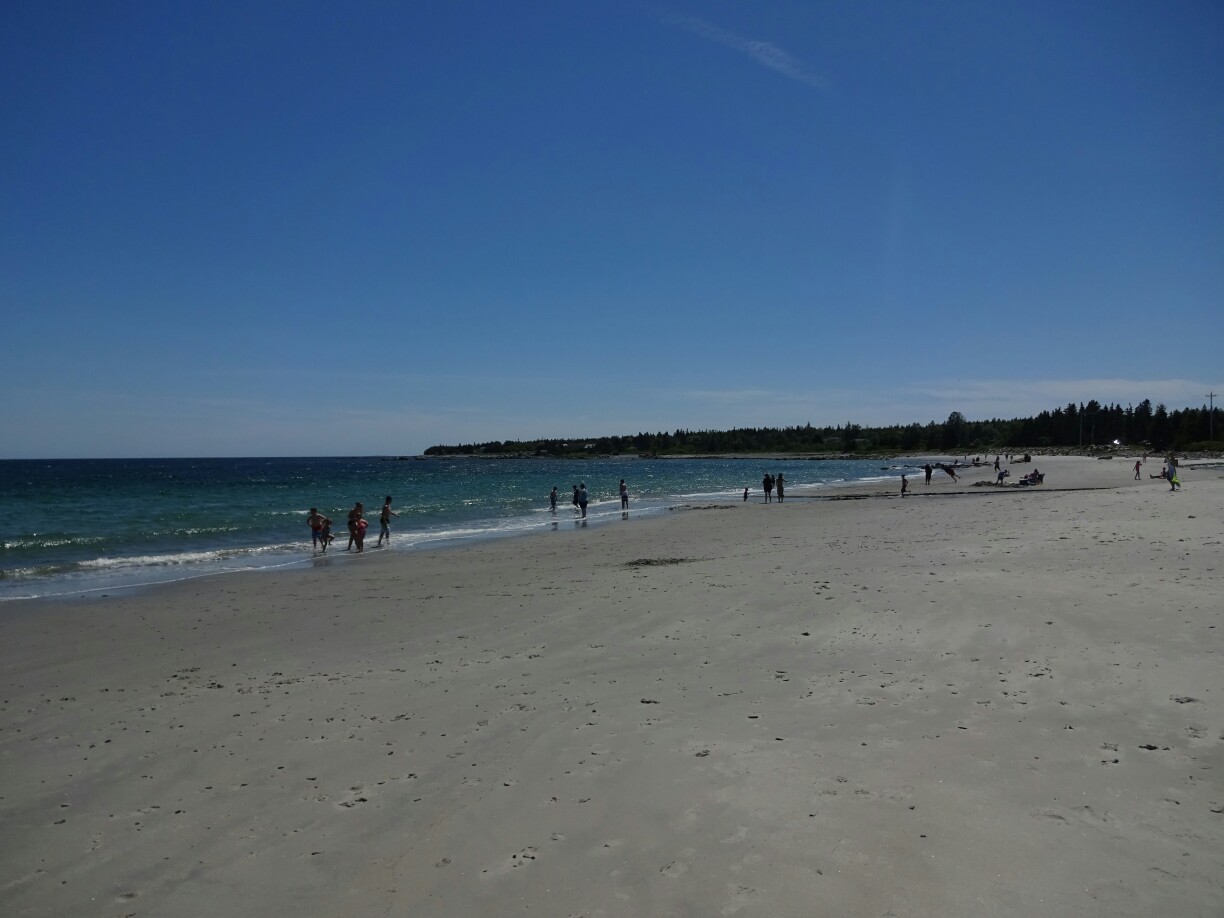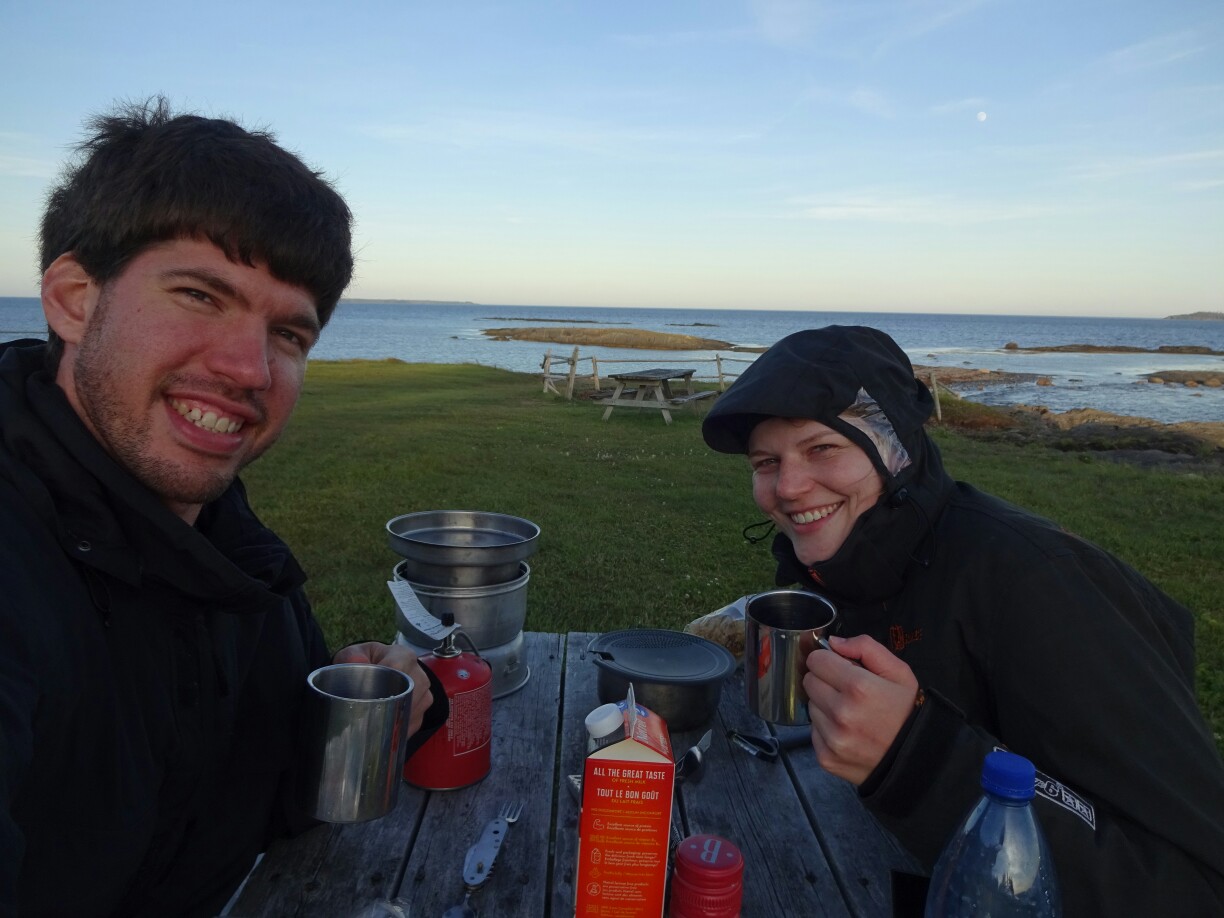From Saskatoon I took a flight via Toronto to Halifax. The last part of my trip was about to begin – a six week adventure through the maritime provinces of Canada! I had booked a rental car for the whole time to be more flexible and independent, which I would share with my friends Maren, Raghu and Eiko, who would join me on different parts of this trip for about two weeks each.

After I had picked up the car, I drove downtown to meet up with Sarah. She had been an exchange student at my parents place in 2008/09 and I hadn’t seen her since then. It was the final stretch for the defense of her masters degree, but she managed to take some time off to give me a short overview of the city. We took a stroll through the public gardens and climbed up to the entrance to the citadel, where we had a good view of the city and the harbor.


In the evening I left Sarah to her work and went back to the airport to pick up Maren. She had been in high school with me in Germany and had worked enough overtime for two weeks of holidays, which her boyfriend couldn’t get. To make use of the great weather, we departed immediately for “Peggy’s Cove”, where a picturesque lighthouse and a magnificent sunset were waiting for us. What a great start to this trip!


The next day we followed the “Lighthouse route” along the rugged coastline, but instead of more lighthouses we found little fishing villages filled with empty lobster traps waiting to placed and sandy beaches, where a few brave people defied the cold waters of the Atlantic to swim in the crystal clear water. Unfortunately the wind was blowing too much to enjoy a nice picnic at the beach without the food being covered in sand.


In Mahone Bay we ventured along the waterfront in search for some ice cream, while taking in the view of the numerous wooden churches lined up along the water and spread out all over the town. Without knowing, the day had gone by pretty quickly and we still needed to find a campground for the night. We opted for the one at “The Ovens”, which was also located right at the water with a nice view across the bay.


The next morning we were quicker than expected and used the extra time to explore the rocky shore, for which this area is known for. We followed the little trail along the edge and discovered the caves that had been washed out of the nearly vertically stacked layers of shale. One of them was called the “Cannon Cave”, as it made a thundering noise when a large wave reached the end of the tunnel.


Afterwards we drove back to Lunenburg, which was named in honor of the British King George August of Hanover, who was simultaneously the duke of Braunschweig-Lüneburg. However, many Germans settled in and around Lunenburg after it was founded in 1753. The historic downtown provides the best preserved example of a planned British colonial settlement in Canada and was therefore declared a UNESCO world heritage site in 1995.


A little further down the coast we made another stop at the “Kejimkujik National Park Seaside”. It is located in an area that was once cleared for a large sheep farm. But the soil proved to be poor in nutrients and the sheep farm was soon abandoned and finally bought by Parks Canada in 1985 to protect the undeveloped shoreline, which is home to some endangered birds, as well as seals and other marine wildlife.


